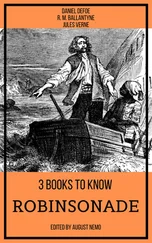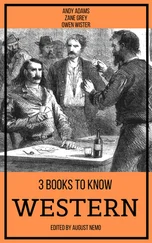WHEN MORDRED ESCAPED Sir Launcelot, he got to horse, all wounded as he was, and never drew rein till he had found King Arthur, to whom he told all that had happened.
Then great was the King's grief. Despite all that Mordred could say, he was slow to doubt Sir Launcelot, whom he loved, but his mind was filled with forebodings; for many a knight had been slain, and well he knew that their kin would seek vengeance on Sir Launcelot, and the noble fellowship of the Round Table be utterly destroyed by their feuds.
All too soon, it proved even as the King had feared. Many were found to hold with Sir Mordred; some because they were kin to the knights that had been slain, some from envy of the honour and worship of the noble Sir Launcelot; and among them even were those who dared to raise their voice against the Queen herself, calling for judgment upon her as leagued with a traitor against the King, and as having caused the death of so many good knights. Now in those days the law was that if any one were accused of treason by witnesses, or taken in the act, that one should die the death by burning, be it man or woman, knight or churl. So then the murmurs grew to a loud clamour that the law should have its course, and that King Arthur should pass sentence on the Queen. Then was the King's woe doubled; "For," said he, "I sit as King to be a rightful judge and keep all the law; wherefore I may not do battle for my own Queen, and now there is none other to help her." So a decree was issued that Queen Guenevere should be burnt at the stake outside the walls of Carlisle.
Forthwith, King Arthur sent for his nephew, Sir Gawain, and said to him: "Fair nephew, I give it in charge to you to see that all is done as has been decreed." But Sir Gawain answered boldly: "Sir King, never will I be present to see my lady the Queen die. It is of ill counsel that ye have consented to her death." Then the King bade Gawain send his two young brothers, Sir Gareth and Sir Gaheris, to receive his commands, and these he desired to attend the Queen to the place of execution. So Gareth made answer for both: "My Lord the King, we owe you obedience in all things, but know that it is sore against our wills that we obey you in this; nor will we appear in arms in the place where that noble lady shall die"; then sorrowfully they mounted their horses, and rode to Carlisle.
When the day appointed had come, the Queen was led forth to a place without the walls of Carlisle, and there she was bound to the stake to be burnt to death. Loud were her ladies' lamentations, and many a lord was found to weep at that grievous sight of a Queen brought so low; yet was there none who dared come forward as her champion, lest he should be suspected of treason. As for Gareth and Gaheris, they could not bear the sight and stood with their faces covered in their mantles. Then, just as the torch was to be applied to the faggots, there was a sound as of many horses galloping, and the next instant a band of knights rushed upon the astonished throng, their leader cutting down all who crossed his path until he had reached the Queen, whom he lifted to his saddle and bore from the press. Then all men knew that it was Sir Launcelot, come knightly to rescue the Queen, and in their hearts they rejoiced. So with little hindrance they rode away, Sir Launcelot and all his kin with the Queen in their midst, till they came to the castle of the Joyous Garde where they held the Queen in safety and all reverence.
But of that day came a kingdom's ruin, for among the slain were Gawain's brothers, Sir Gareth and Sir Gaheris. Now Sir Launcelot loved Sir Gareth as if he had been his own younger brother, and himself had knighted him; but, in the press, he struck at him and killed him, not seeing that he was unarmed and weaponless; and in like wise, Sir Gaheris met his death. So when word was brought to King Arthur of what had passed, Sir Gawain asked straightway how his brothers had fared. "Both are slain," said the messenger. "Alas! my dear brothers!" cried Sir Gawain; "how came they by their death?" "They were both slain by Sir Launcelot." "That will I never believe," cried Sir Gawain; "for my brother, Sir Gareth, had such love for Sir Launcelot that there was naught Sir Launcelot could ask him that he would not do." But the man said again: "He is slain, and by Sir Launcelot."
Then, from sheer grief, Sir Gawain fell swooning to the ground. When he was recovered, he said: "My Lord and uncle, is it even as this man says, that Sir Launcelot has slain my brother Sir Gareth?" "Alas!" said the King, "Launcelot rode upon him in the press and slew him, not seeing who he was or that he was unarmed." "Then," cried Gawain fiercely, "here I make my avow. Never, while my life lasts, will I leave Sir Launcelot in peace until he has rendered me account for the slaying of my brother." From that day forth, Sir Gawain would not suffer the King to rest until he had gathered all his host and marched against the Joyous Garde. Thus began the war which broke up the fellowship of the Round Table.

HOW SIR GAWAIN DEFIED SIR LAUNCELOT
––––––––
NOW IT CAME TO THE ears of the Pope in Rome that King Arthur was besieging Sir Launcelot in his castle of the Joyous Garde, and it grieved him that there should be strife between two such goodly knights, the like of whom was not to be found in Christendom. So he called to him the Bishop of Rochester, and bade him carry word to Britain, both to Arthur and to Sir Launcelot, that they should be reconciled, the one to the other, and that King Arthur should receive again Queen Guenevere.
Forthwith Sir Launcelot desired of King Arthur assurance of liberty and reverence for the Queen, as also safe conduct for himself and his knights, that he might bring Dame Guenevere, with due honour, to the King at Carlisle; and thereto the King pledged his word.
So Launcelot set forth with the Queen, and behind them rode a hundred knights arrayed in green velvet, the housings of the horses of the same all studded with precious stones; thus they passed through the city of Carlisle, openly, in the sight of all, and there were many who rejoiced that the Queen was come again and Sir Launcelot with her, though they of Gawain's party scowled upon him.
When they were come into the great hall where Arthur sat, with Sir Gawain and other great lords about him, Sir Launcelot led Guenevere to the throne and both knelt before the King; then, rising, Sir Launcelot lifted the Queen to her feet, and thus he spoke to King Arthur, boldly and well before the whole court: "My lord, Sir Arthur, I bring you here your Queen, than whom no truer nor nobler lady ever lived; and here stand I, Sir Launcelot du Lac, ready to do battle with any that dare gainsay it"; and with these words Sir Launcelot turned and looked upon the lords and knights present in their places, but none would challenge him in that cause, not even Sir Gawain, for he had ever affirmed that Dame Guenevere was a true and honourable lady.
Then Sir Launcelot spoke again: "Now, my Lord Arthur, in my own defence it behoves me to say that never in aught have I been false to you. That I slew certain knights is true; but I hold me guiltless, seeing that they brought death upon themselves. For no sooner had I gone to the Queen's bower, as she had commanded me, than they beset the door, with shameful outcry, that all the court might hear, calling me traitor and felon knight." "And rightly they called you," cried Sir Gawain fiercely. "My lord, Sir Gawain," answered Sir Launcelot, "in their quarrel they proved not themselves right, else had not I, alone, encountered fourteen knights and come forth unscathed."
Читать дальше













